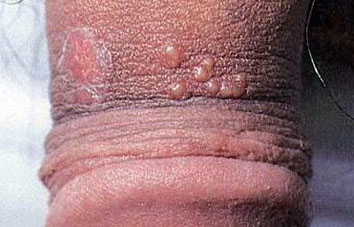
TCM Perspective On
Genital Herpes
In traditional Chinese medicine, genital herpes is discussed in the categories of "hot sores" (re chuang) or "genital carbuncle" (yin chuang). Because sexual contact is the primary factor in contracting genital herpes, you are more likely to get herpes if you or your partner have multiple or casual sexual partners. Traditional Chinese medicine does not have a "germ theory" of disease, but perceives pathogens as environmental factors such as cold, heat, dampness, dryness, etc. The internal organs of the body are divided into Yin organs and Yang organs. Each organ system tends to be more or less susceptible to the various pathogenic environmental factors, as well as being susceptible to characteristic emotional disturbances.
In the case of genital herpes, the most common pathogenic factors are dampness and heat, and also the emotion of anger. The key internal organs are the Liver and Gallbladder (Yin/Yang partners), and the Kidneys (with their Yang partner, the Urinary Bladder). The overall Chinese medicine diagnosis of genital herpes is active toxic damp heat. Within this larger category, three specific patterns are differentiated: damp heat pouring down; toxic heat accumulation; and Liver and Kidney deficiency.
Western Point of View
Genital herpes is a sexually transmitted infection that can cause blisters and skin ulcers in the genital and anal area. It can be caused by either of two types of herpes simplex virus, HSV-1 or HSV-2. HSV-2 is the more common cause. HSV-1 more commonly causes sores on the face and mouth.
HSV spreads from person to person through kissing and skin-to-skin contact, as well as through vaginal, oral or anal intercourse. An infected person often transmits the virus when skin blisters or ulcers are visible, but the virus also can be spread when there are no symptoms or skin sores at all. Herpes virus can be transmitted by people who don't know they are infected.
In a pregnant woman with HSV infection (usually HSV-2), the virus can pass to the baby during delivery, causing infections of the newborn's skin, mouth, lungs or eyes. If the herpes virus spreads through the baby's bloodstream, it can cause serious infections of the brain and other vital organs.